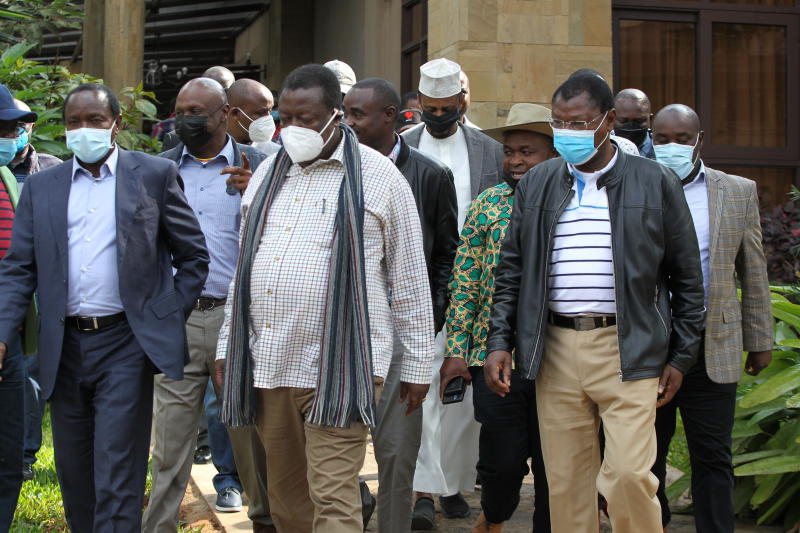×
The Standard e-Paper
Join Thousands Daily

The One Kenya Alliance (OKA) is gradually positioning itself into a third alternative in next year’s election, a contest billed as a duel between Deputy President William Ruto and Opposition leader Raila Odinga.
And while OKA principals – Kalonzo Musyoka (Wiper), Senator Gideon Moi (Kanu), Musalia Mudavadi (ANC) and Senator Moses Wetang’ula (Ford Kenya) are open to a partnership with Raila, they are reportedly prepared to go the whole hog without the former PM.